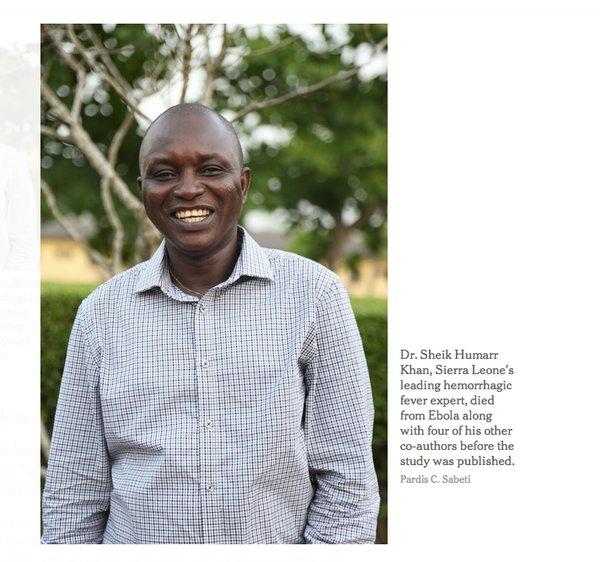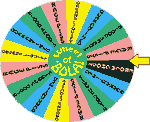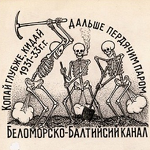|
http://news.yahoo.com/says-ebola-outbreak-could-strike-20-000-people-102050086.html GENEVA (Reuters) - The current Ebola outbreak in West Africa could infect more than 20,000 people, the World Health Organisation (WHO) said on Thursday in a bleak assessment of the deadly disease. The United Nations health agency issued a strategic plan to combat the oubreak in four West African nations where it said the actual number of cases could already be two to four times higher than the reported 3,069. The death toll stands at 1,552. "This roadmap assumes that in many areas of intense transmission the actual number of cases may be 2-4 fold higher than that currently reported. It acknowledges that the aggregate case load of Ebola Virus Disease could exceed 20,000 over the course of this emergency," the WHO said.
|
|
|
|

|
| # ? May 6, 2024 12:53 |
|
Sheng-ji Yang posted:http://news.yahoo.com/says-ebola-outbreak-could-strike-20-000-people-102050086.html That's very optimistic, considering that the forcefully quarantined Liberian slum of West Point alone has ~75,000 residents.
|
|
|
|
Torka posted:If you get it and then recover, can you get it again or are you immune after that? You're immune after recovering from Ebola, but only to that particular strain. http://www.nejm.org/doi/full/10.1056/NEJMc1300266 According to that article, a followup study with patients who recovered from Ebola showed they were still immune even after ten years. However, if you recover from the Zaire strain for example, you can still get any of the other four strains.
|
|
|
|
Stupid question because I don't know Biology well enough, but can we not synthesize a vaccine from people who have survived and are immune? Presumably they're immune now because their antibodies have the signature code blaaaaaaaahhhhh.... (Honestly its been a long time since I've done Biology)
|
|
|
|
|
Possible, but not feasible.
|
|
|
|
No. Your body wouldn't make it's own antibodies so you would only have short term protection. You might have a treatment but not a vaccine.
|
|
|
|
Wasn't there someone found with two different strains at once?
|
|
|
|
Sheng-ji Yang posted:http://www.who.int/csr/don/2014_08_28_ebola/en/ Seems like they're falling further and further behind the real numbers if everything we've read is true.
|
|
|
|
WMain00 posted:Stupid question because I don't know Biology well enough, but can we not synthesize a vaccine from people who have survived and are immune? Presumably they're immune now because their antibodies have the signature code blaaaaaaaahhhhh.... In general a vaccine works by fooling your body into thinking you already have gotten the disease, and tricking it into producing antibodies with the ability to fight the disease. Having victims of the virus being monitored at one of the worlds best health care facilities may help speed up a vaccine or treatments, but you cannot just exchange antibodies to fight a disease.
|
|
|
|
Ah interesting, in German there is active vaccination (aktive Impfung) and passive vaccination (passive Impfung). In english they're called vaccination and artificial passive immunization. So antibodies isolated from Ebola survivors can be used for artificial passive immunization. But as already has been said only works temporarily and you also need a ton of blood from Ebola survivors. That's why it's not feasible.
|
|
|
|
Lucy Heartfilia posted:Ah interesting, in German there is active vaccination (aktive Impfung) and passive vaccination (passive Impfung). In english they're called vaccination and artificial passive immunization. Think this was done with the male American survivor, and its probably the main reason he lived as he was looking bad before he had the transfusion from a 19 year old survivor who he had treated, then quickly stabilised.
|
|
|
|
Sounds like the WHO are still in denial. There are 3,000 known cases and they admit the true number is 2 to 4 times that and they say that it "could" end up infecting 20,000 people. If 6-12,000 people already have it then the case number is going to hit 20,000 in the next three to four weeks guaranteed. http://news.yahoo.com/says-ebola-outbreak-could-strike-20-000-people-102050086.html
|
|
|
|
Randandal posted:That's very optimistic, considering that the forcefully quarantined Liberian slum of West Point alone has ~75,000 residents. It also has an R0 of 2-4. People that are infected now are going to go on to infect 2-4 more people.
|
|
|
|
Charlz Guybon posted:Sounds like the WHO are still in denial. There are 3,000 known cases and they admit the true number is 2 to 4 times that and they say that it "could" end up infecting 20,000 people. If 6-12,000 people already have it then the case number is going to hit 20,000 in the next three to four weeks guaranteed. This distrust of the WHO some what bothers me, in general this forum is quite science friendly and correctly laughs at wacky climate change deniers and anti-vaccination quacks on the basis that the experts generally know what they're talking about. The WHO employs and consults top experts on epidemiology/infectious diseases and has enormous experience dealing with the problems inherent to health care in Africa. Why then assume that they are in a state of denial? In the article you reference the WHO states: "This roadmap assumes that in many areas of intense transmission the actual number of cases may be 2-4 fold higher than that currently reported. It acknowledges that the aggregate case load of Ebola Virus Disease could exceed 20,000 over the course of this emergency," Does not sound like denial to me. Of course they could be wrong, but I'm willing to lend a lot more credibility to the opinion of a panel of experts opposed to random opinions. quote:It also has an R0 of 2-4. People that are infected now are going to go on to infect 2-4 more people. Citation needed. As far as I'm aware the CDC or the WHO have not released an estimate of the R0 data of the current Ebola outbreak in west Africa, I would wager that establishing the R0 is pretty much impossible as the total case load is hard to determine and the R0 in this situation is not a static number.
|
|
|
|
If there have been 6,000-12,0000 cases thus far, and the R0 is 2-4 and the outbreak is contained in six to nine months (as the WHO has projected) then far more than 20,000 people will be infected when all is said and done. It's simple math.
|
|
|
|
It's also incorrectly interpreting their statements. They're saying the infection rate is 2-4 times higher in some areas, not in all of them. Where are you getting the R0 from? What do you think "case load" means? Why are you defaulting to a position that the WHO can't perform simple math?
|
|
|
|
Charlz Guybon posted:If there have been 6,000-12,0000 cases thus far, and the R0 is 2-4 and the outbreak is contained in six to nine months (as the WHO has projected) then far more than 20,000 people will be infected when all is said and done. It's simple math. Nothing about epidemiological predictions is simple math, the fact that you are using simple math for the estimate should be a heads up that your doing it wrong. Here, have a look at a person skilled in epidemiology making predictions based on incomplete data and the reservations he has: http://grantbrown.github.io/libspatialSEIR/doc/tutorials/Ebola2014/Ebola2014.html
|
|
|
|
Discendo Vox posted:It's also incorrectly interpreting their statements. They're saying the infection rate is 2-4 times higher in some areas, not in all of them. Where are you getting the R0 from? What do you think "case load" means? Why are you defaulting to a position that the WHO can't perform simple math? http://www.ncbi.nlm.nih.gov/pubmed/15178190 Estimated at 1.8 with the Congo strain. It's listed in wikipedia as 1-4 but I don't have access for some of the cited articles. For reference, in 95, the Ebola outbreak started early January and ended mid July at 315 cases in a city 400,000 large. Do you have a better estimate at total number of cases right now? They're saying 2-4x times worse in some areas. They have minimal presence in these areas. Number of new cases is growing by 80/day but they're saying it could be 160-320/day right? What is the timeline that they should realistically be able to get control in multiple urban areas including a city with 1 million people and dead literally in the streets? The WHO estimates might as well be pulling numbers out of a hat because there aren't enough healthcare providers to assess the outbreak.
|
|
|
|
Assuming an exponential growth of 3% daily, we might be seeing numbers like these from the CDC in 9 months: Suspected and Confirmed Case Count: 8,900,000 Suspected Case Deaths: 4,500,000 Laboratory Confirmed Cases: 5,100,000 This can't be right, can it? I assumed 3% daily exponential growth based on previous CDC updates, but I'm bad with math. I would appreciate it if someone who's better with math or knows more about statistics could check this. These numbers just seem insane.
|
|
|
|
Lote posted:http://www.ncbi.nlm.nih.gov/pubmed/15178190 Note that in the abstract alone they are careful enough to mention that the stated R0 of 1.8 is valid only in the absence of control interventions. That is why random calculations with R0 are not useful for estimating the extend of the current outbreak. I think the WHO does understand this. The WHO is estimating that this outbreak could last for 6 to 9 months. Of course this figure is subject to a lot of uncertainty. quote:The WHO estimates might as well be pulling numbers out of a hat because there aren't enough healthcare providers to assess the outbreak. Nice opinion, do you have anybody that does have an inkling of an idea what they're talking about backing up this claim or is it supported by your degree from the university of wikipedia? Ebola Roulette posted:Assuming an exponential growth of 3% daily, we might be seeing numbers like these from the CDC in 9 months: Your math is probably correct, but the underlying assumption is in error. This kind of extrapolation is never seriously used to predict the expected case load. People that do this for a living use quite sophisticated multivariate models that are quite beyond my limited statistical capabilities. If your serious about wanting to perform your own calculations, here is a quick guide for total idiots like me that will get you laughed at by serious epidemiologis: http://www.samsi.info/sites/default/files/UGWorkshopHoward_May2010.pdf
|
|
|
|
IAMNOTADOCTOR posted:Note that in the abstract alone they are careful enough to mention that the stated R0 of 1.8 is valid only in the absence of control interventions. That is why random calculations with R0 are not useful for estimating the extend of the current outbreak. I think the WHO does understand this. I would say that what's going on in Liberia, especially, is pretty close to the absence of control interventions at this point. Sierra Leone and Guinea are doing better. This isn't controversial. Multiple organizations have stated that they're at their peak for treating the disease. Multiple articles on this page state that they have no idea about the true number of infections. The WHO gives a range of 2-4x worse which super wide. I should rephrase and say it's de facto guessing if it's so controversial.
|
|
|
|
Hey Doc, for the dedicated OP I'm writing up, you want to define some epi terms like Aggregate Caseload so as to avoid this confusion?
|
|
|
|
IAMNOTADOCTOR posted:Note that in the abstract alone they are careful enough to mention that the stated R0 of 1.8 is valid only in the absence of control interventions. That is why random calculations with R0 are not useful for estimating the extend of the current outbreak. I think the WHO does understand this. Yeah I figured no epidemiologist would ever use that kind of math. I just wanted to see what what an exponential model would look like. Of course, the model assumes the world has no other variables, and that people would not alter their behavior to slow down the spread. Based on the website you linked me to, a pure exponential calculation doesn't take into account incubation periods, how long people can shed the virus, how many people infected persons come into contact with or anything. As I said, the calculation also assumes people don't wash their hands, quarantine the sick, or take preventative measures against the spread. So, thanks for the link. That website has some nifty info about epidemiology.
|
|
|
|
http://www.reuters.com/article/2014/08/28/us-health-ebola-genome-idUSKBN0GS2E120140828 (Reuters) - Genetic studies of some of the earliest Ebola cases in Sierra Leone reveal more than 300 genetic changes in the virus as it leapt from person to person, changes that could blunt the effectiveness of diagnostic tests and experimental treatments now in development, researchers said on Thursday. "We found the virus is doing what viruses do. It's mutating," said Pardis Sabeti of Harvard University and the Broad Institute, who led the massive study of samples from 78 people in Sierra Leone, all of whose infections could be traced to a faith healer whose claims of a cure attracted Ebola patients from Guinea, where the virus first took hold. The findings, published in Science, suggest the virus is mutating quickly and in ways that could affect current diagnostics and future vaccines and treatments, such as GlaxoSmithKline's Ebola vaccine, which was just fast-tracked to begin clinical trials, or the antibody drug ZMapp, being developed by California biotech Mapp Biopharmaceutical. ... Study coauthor Robert Garry of Tulane University said the virus is mutating at twice the rate in people as it was in animal hosts, such as fruit bats. Garry said the study has shown changes in the glycoprotein, the surface protein that binds the virus to human cells, allowing it to start replicating in its human host. "It's also what your immune system will recognize," he said.
|
|
|
|
 That is rather terrifying, given the potential for it to enter into brand new animal hosts as well due to this outbreak. That is rather terrifying, given the potential for it to enter into brand new animal hosts as well due to this outbreak.
|
|
|
|
Sheng-ji Yang posted:http://www.reuters.com/article/2014/08/28/us-health-ebola-genome-idUSKBN0GS2E120140828 ^ Beaten, teach me for taking ages. Ok this is worrying for a number of factors, most notably how close Ebola is to being highly transmissible with just a few changes. The 2 big ones are easy airborne transmission and being able to be spread via Mosquitoes. Airborne transmission has been a big worry, and almost inevitable to happen at some point, but its always a case of when and odds are its going to be a long time away, even if it turns more susceptible to mutation. Mosquito transmission has had a few studies to rule it out in the existing strains, as it possibly isn't that much of a leap for Ebola to do, especially given many of the other hemorrhagic viruses are spread in this way. If Ebola eventually works out how to survive in Mosquitoes its going to make stopping it a lot worse in any outbreak. ukle fucked around with this message at 22:39 on Aug 28, 2014 |
|
|
|
Sheng-ji Yang posted:http://www.reuters.com/article/2014/08/28/us-health-ebola-genome-idUSKBN0GS2E120140828 Yeah so now how likely is it that Plague, Inc: Evolved becomes reality and I shoot myself in the head to be spared an agonising death, alone on the street, bloodshitting? To be more serious, how much does mutation affect research on a vaccine?
|
|
|
|
I read that article just a few minutes ago and also came to post about it. While the mutations are allowing Ebola to become more contagious and infectious, these same mutations are also lowering the mortality rate. But I'm still freaking out. The mortality rate of Spanish Flu was estimated to be between 3-6% and still killed up to 120 million people. Even a low mortality rate is cause for concern if a virus can infect a lot of people. Here's an interesting article that talks about Ebola pathogenesis: http://jvi.asm.org/content/77/18/9733 quote:Ebola virus and the related Marburg virus are members of the Filovirus family, which are pleomorphic, negative-sense RNA viruses whose genome organization is most similar to the Paramyxoviridae. Just for reference, the Paramyxoviridae family contains some of the most contagious viruses that are known, including measles. http://web.stanford.edu/group/virus/paramyxo/paramyxo.html http://www.cdc.gov/measles/about/transmission.html quote:Measles is so contagious that if one person has it, 90% of the people close to that person who are not immune will also become infected with the measles virus.
|
|
|
|
So basically Ebola could mutate and sacrifice its mortality rate to be as contagious as measles, but it'll still have a loving huge mortality rate in comparison to other infectious diseases? 
|
|
|
|
It has been thought that the higher transmission rate and lower mortality rate were due to social factors, but if it's actually a result of mutations that could be uh... bad.
|
|
|
|
http://www.nytimes.com/2014/08/29/w...v=top-news&_r=0 Mass quarantine is totally ineffective and is just breeding distrust and chaos and possibly ebola. quote:MONROVIA, Liberia — Some people are swimming in and out of the Ebola quarantine zone in this seaside capital. One man slips out every day to reach his job at a Western embassy. Another has turned his living room into a tollbooth, charging others to escape through his apartment at the edge of the cordoned area. Countless others have used a different method: bribing their way out with fees that soldiers determine according to a person’s appearance, circumstances and even gender.
|
|
|
|
Quarantine only works if you have the means to employ it properly ala Cordon sanitaire. None of the countries affected have the means, hell it would be pushing it for any country other than China given the size of some of the areas affected in the countries. It was doomed from the start unless the rest of the world acted appropriately instead of almost turning a blind eye to it.
|
|
|
|
 He was invited to spend the summer at Harvard, but he stayed to fight the outbreak. 
|
|
|
|
ukle posted:how close Ebola is to being highly transmissible with just a few changes. The 2 big ones are easy airborne transmission and being able to be spread via Mosquitoes. Why can it not currently be spread by mosquitoes?
|
|
|
|
Torka posted:Why can it not currently be spread by mosquitoes? Just right now it doesn't match up with their dna in the right way to bypass what amounts to the first line of defenses.
|
|
|
|
My Imaginary GF posted:Hey Doc, for the dedicated OP I'm writing up, you want to define some epi terms like Aggregate Caseload so as to avoid this confusion? Honestly, I feel a bit unqualified for this, but if you cant find a better source then I'd be willing to help out. ukle posted:
Source? This strain of Ebola becoming airborne is extremely unlikely as far as I know. See also the opinion of a Colombia University epidemiologist : http://www.popsci.com/article/science/four-predictions-about-ebola-outbreak "Ebola is not airborne, and it’s extremely unlikely that it will mutate to be airborne,” Morse says. Although it’s theoretically possible, it’s incredibly rare for a pathogen to change its route of transmission." As an example, HIV has been mutating like crazy for the past decades in millions of people and is not even close to changing the route of infection. As far as mosquito's becoming a host or vector of the disease, I cant find any publications supporting this risk, and only one publication describing the inability of arthropods to sustain or replicate the Ebola virus after direct injection. In my opinion, ebola becoming mosquito born is highly unlikely. It takes enormous amounts of evolution for a virus to develop a sylvatic cycle: cycling between a vector such as a mosquito and a host for replication. As an example, hundreds of years ago dengue fever started out as a sylvactic cycle between mosquito's and primates, and slowly evolved to also infect humans. I'm not aware of any viruses that adapted to mosquito vectors in the last thousands of years.
|
|
|
|
Ebola Roulette posted:I read that article just a few minutes ago and also came to post about it. While the mutations are allowing Ebola to become more contagious and infectious, these same mutations are also lowering the mortality rate. But I'm still freaking out. Could you post that article? I haven't read anything yet about this strain of Ebola genetically becoming more contagious, infectious or less deadly. Ebola Roulette posted:Here's an interesting article that talks about Ebola pathogenesis: A well written paper, but I think people here are interpreting that cited bit wrong. The authors state that the genome organization is most similar to the Paramyxoviridae. What this means is that the shape of the RNA ( what this virus uses as a sort of DNA) and all the squiggly bits attached is most similar to that of the Paramyxoviridae. For reference, I could state that your genome organisation is almost identical to that of a snail, a double helix. This does not mean that you are identical in behaviour or appearance to a snail. The genome organization does not account for what genes are included and what they encode for, arguable very important in discussing how a virus behaves.
|
|
|
|
IAMNOTADOCTOR posted:Could you post that article? I haven't read anything yet about this strain of Ebola genetically becoming more contagious, infectious or less deadly. Check your PMs. I may quote this in the OP, if you don't mind.
|
|
|
|
My Imaginary GF posted:Check your PMs. I may quote this in the OP, if you don't mind. No problem, I don't have Pm's so email me if you have something you want me to take a look at (REDACTED). Also, we might not have agreed on everything, but that is a mighty fine new thread/OP you made there, thanks for the effort. IAMNOTADOCTOR fucked around with this message at 16:56 on Aug 29, 2014 |
|
|
|

|
| # ? May 6, 2024 12:53 |
|
IAMNOTADOCTOR posted:No problem, I don't have Pm's so email me if you have something you want me to take a look at ( cc). Also, we might not have agreed on everything, but that is a mighty fine new thread/OP you made there, thanks for the effort. Sent, thanks.
|
|
|

























